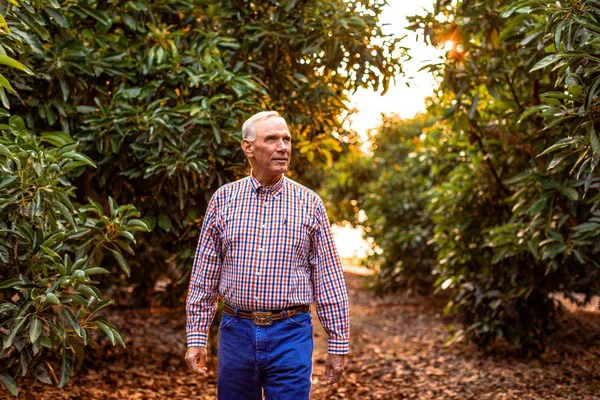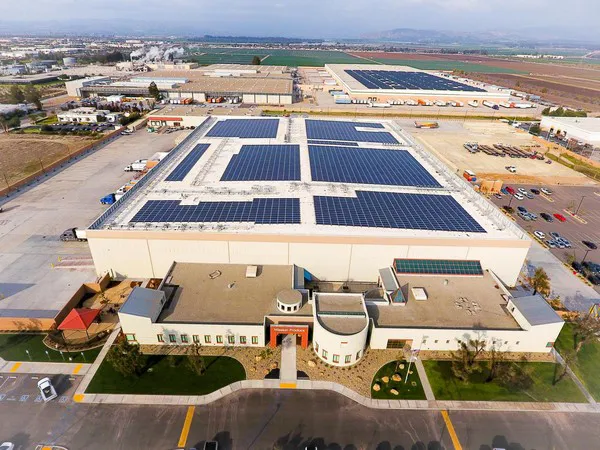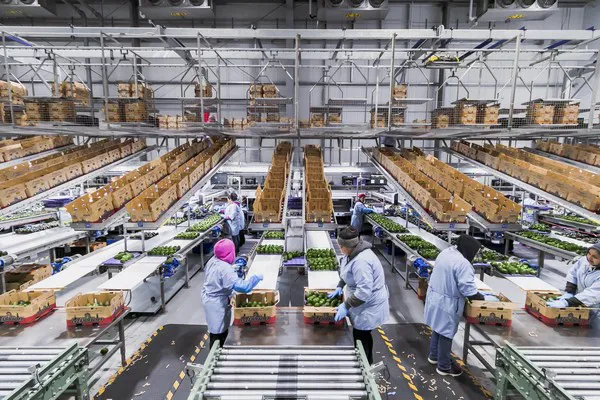Mission Produce, Inc., producer and distributer of fresh Hass avocados, announced yesterday the release of its inaugural Environmental, Social and Governance (ESG) report, Finest for the Future.
The report highlights Mission’s accomplishments in sustainable farming and details the status and scope of its goals across Diversity, Equity and Inclusion (DE&I), climate risk, waste reduction and community investment.
 Steve Barnard, chief executive officer and founder, Mission Produce, Inc.
Steve Barnard, chief executive officer and founder, Mission Produce, Inc.
“This report illustrates our dedication to the finest practices for our people, product and planet,” said Steve Barnard, chief executive officer and founder of Mission. “We embody sustainable practices and our farming practices allow us to keep our water usage per avocado below the industry average.”
The report’s highlights include:
- Implementing a reduced plastic bag in at least 50 percent of the bags packed and shipped globally by fiscal year 2025, equating to almost 500,000 0.5-liter plastic bottles.
- Mission’s biodiverse farming methods use less irrigation water per avocado compared to the average grower, specifically 40.5% less water in Peru¹ and 40% less water in California².
- Solar panels at the packing facility in Mission’s Oxnard headquarters power almost three-quarters of the facility during peak season. More facilities will transition to supply renewable energy.
 At Mission's Oxnard headquarters, solar panels power almost three-quarters of the packing facility during peak season.
At Mission's Oxnard headquarters, solar panels power almost three-quarters of the packing facility during peak season.
- By the end of 2021, Mission aims to apply shelf-life extension technology to 22.5 million pounds of avocados to combat food waste and reduce shrink of avocados.
- Mission’s global workforce comprises nearly 50 percent women, almost 20 percent of whom were promoted in 2020.
- In 2020, Mission decreased its total global scope 1 and 2 emissions by 15.8 percent and reduced its waste by 16.2 percent.
Additionally, Mission will sponsor a DE&I initiative in 2021, run by the Center for Growing Talent (CGT) of the Produce Marketing Association. “Creating a diverse, equitable and inclusive culture is essential to attracting, developing and retaining the talent that makes our industry thrive,” said Doug Bohr, CGT’s executive director.
“We recognize the need to further understand and integrate DE&I practices within our industry,” added Barnard.
 By the end of this year, Mission aims to apply shelf-life extension technology to 22.5 million pounds of avocados to combat food waste and reduce shrink of avocados.
By the end of this year, Mission aims to apply shelf-life extension technology to 22.5 million pounds of avocados to combat food waste and reduce shrink of avocados.
Mission’s sustainability topics for reporting were informed by stakeholder engagement through a sustainability material assessment grounded in the Global Reporting Initiative (GRI) and aligned with the Sustainability Accounting Standards Board (SASB).
1.Junta de Usuarios de Riego Presurizado del Distrito de Riego Moche Virú Chao, the average grower in La Libertad produces 15 tons of avocados per hectare and uses 18,000 m3 of water per hectare.
2. California Avocado Commission Industry Statistical Data, from 2015-2019, the average pounds of avocado per bearing acre was 5,832.50 pounds. Mission Produce farms in California produce an average of 15,000-20,000 pounds of avocados per bearing acre.
 For more information:
For more information:
Denise Junqueiro
Mission Produce, Inc.
press@missionproduce.com
www.missionproduce.com
